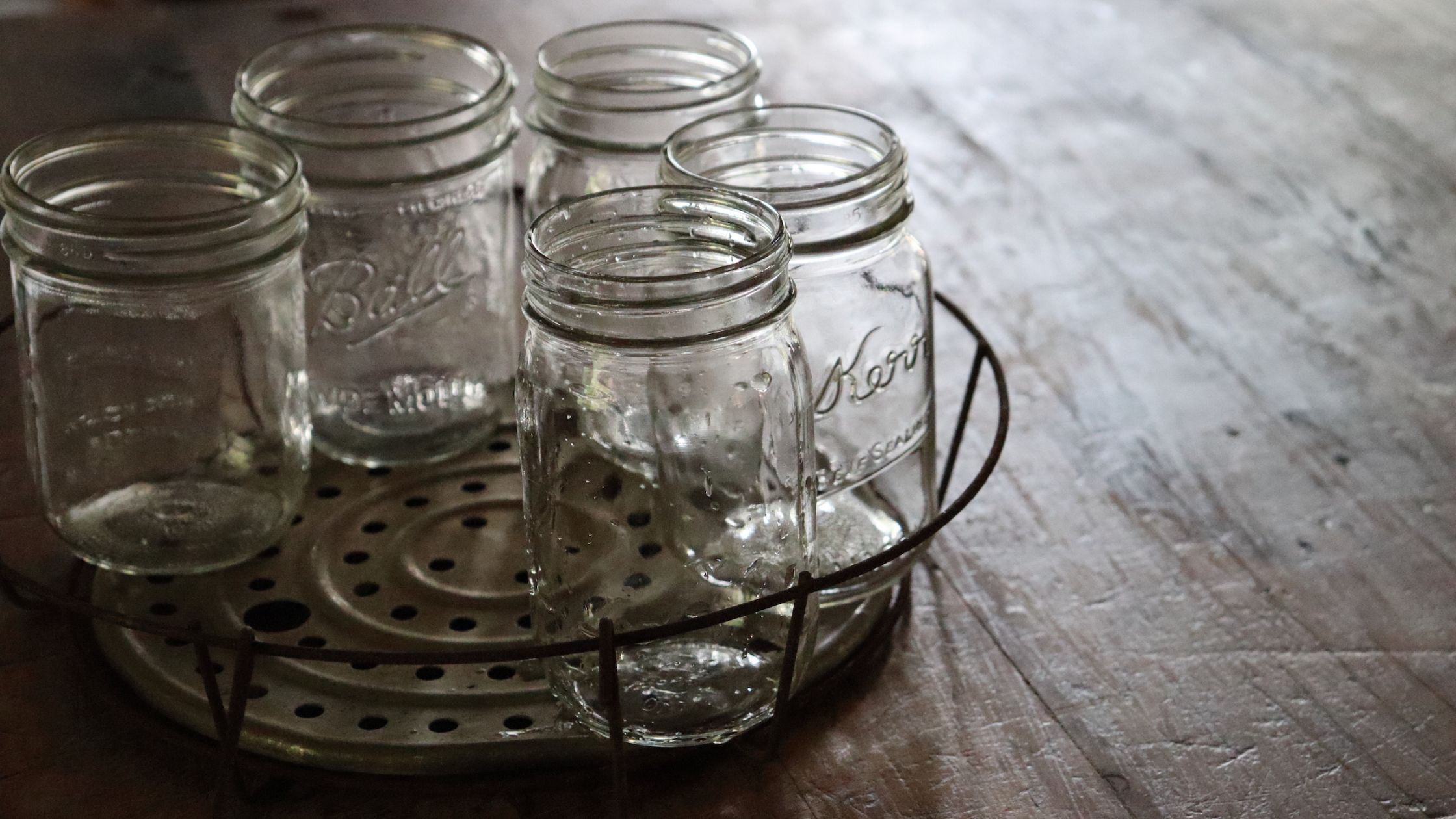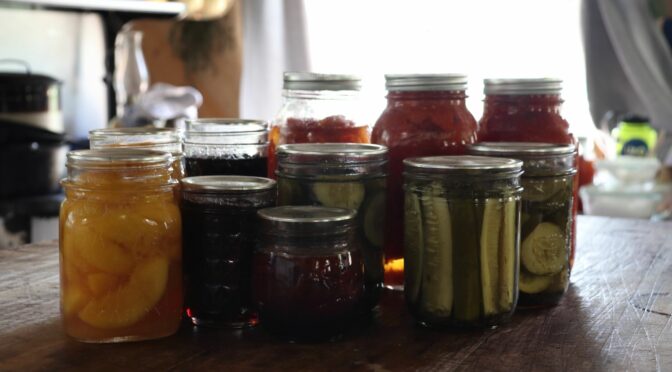Late summer and early fall is harvest season. As vegetable gardeners, we’re busy sowing fall crops, pickling peppers, curing winter squash, and processing flour corn. Food preservation is a time-consuming part of this season. While there are many ways to preserve food, those with large home gardens often turn to canning to put up at least part of their harvest. Maybe you’re trying to eat more affordable, organic food, perhaps you’re trying to connect with your heritage or become more self-reliant, or maybe you’re just a foodie who knows that homegrown salsa tastes best. Here are ten canning tips to help your preservation run smoothly.
Don’t be afraid.
I’ll admit that when I started canning, it made me nervous. The threat of botulism loomed heavy in my mind. I was horrified when my dad gave my grandfather some pickles I had made. What if I poisoned him?
Years later, canning seems like cooking. Yes, there are certain things you need to do to be safe, but they’re no different than making sure your roast reaches a specific temperature.
Make sure you understand the basics of canning.
Getting familiar with the basics of canning is a good idea for safety and ease of processing. Once you understand the basics, you won’t have to check the directions constantly or worry about contaminated food.
Resources:
- Canning & Preserving 101 by Ball Mason Jars
- General Canning Information by the National Center for Home Food Preservation
- Food Preservation Resources Blog
Begin with a clean kitchen.
Starting with a clean kitchen will help ensure your food is sanitary and reduce your stress. You don’t want to have to work around other projects or have to wash utensils to sue them while you’re in the middle of canning.
Double-check your recipe and buy extra.
Make sure you have all the ingredients you need on hand before you begin canning. From personal experience, it’s horrible to realize you don’t have enough pectin for your batch of jam, or you’re missing a spice from your awesome marinara sauce recipe. Double-check ahead of time!
 Consider smaller jars and amounts.
Consider smaller jars and amounts.
Getting a bit carried away can be easy when you first begin preserving food. Maybe you have a lot of vegetables to put up, or perhaps you remember your grandparents putting up tons of beans. As many of us don’t have the large families of previous generations, I recommend people consider using smaller jars. If it’s just you or you have a small family, you may want to consider using pints or even half pints for some foods.
You should also consider how much you’ll go through in a year. Crops like cucumbers can be incredibly prolific, and while it’s easy to think that canning may seem like a great solution, you don’t want to end up with unused jars. According to the USDA, you want to use your canned food in one year to get the best nutritional value. Will you eat a pint of pickles per week? If not, you may not want to can 52 jars. Consider donating extra fresh produce to food banks, family, neighbors, or anyone you know in need.
Prepare extra jars.
Most canning recipes, like those available on the Ball Mason Jar website, will tell you about how many jars a batch will make. It’s still a good idea to have an extra couple of jars on hand and ready to go if you have enough to fill more.
Have snacks and easy meals on hand.
Canning is hard and hungry work. Working hungry and convincing yourself to cook a complicated meal after spending hours processing food is tough. I like having easy snacks and meals on hand for big canning days.
Can in the morning.
You may have other preferences, but I generally like to get my canning done in the morning. This works well for me because the temperature is usually a bit cooler, and it gives me plenty of time to clean up the kitchen in the afternoon and still have a relaxing evening.
Clean as you go.
Another tactic that keeps canning from becoming too stressful is cleaning as you go. While I have a batch of food in the canner, I like to do up what dishes I can or wipe counters, so I don’t leave it all until the very end.
Use fresh, high-quality produce.
Canning is a lot of work. Make sure the food you’re putting up will be delicious and worth the effort by canning your harvests when fresh or selecting good quality produce from the farmers’ market when supplementing your own crop.
Canning is a great way to preserve a lot of food, but it can be intimidating to new canners and is a lot of work. Follow these canning tips to keep your food preservation simple and stress-free this harvest season.

